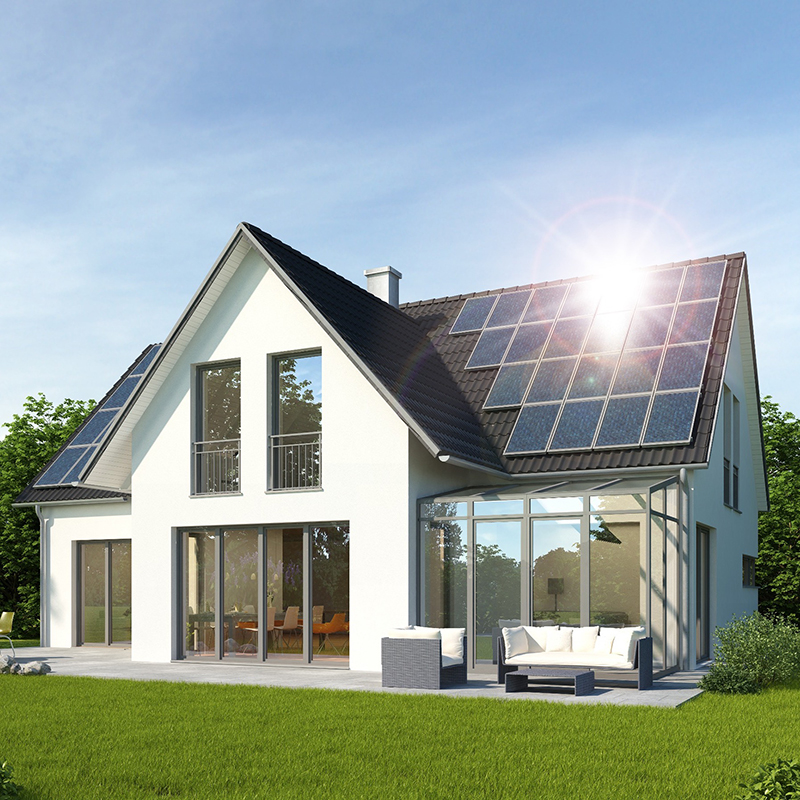
Residential solar panels are another environmentally friendly and affordable method that has been introduced in the past years to help homeowners minimize their electricity bills and minimize their impact on the environment. Governments are providing incentives, and technological advancements have led more households to invest in solar power systems.
What Are Residential Solar Panels?
Photovoltaic (PV) panels, also referred to as residential solar panels Virginia are equipment that transforms solar energy into electricity. They are mounted on roofs or ground-mounted buildings and linked to the home’s electric system. Electricity generated can be used to light bulbs, run appliances, and power other domestic gadgets.
- Function: Capture sunlight and convert it to electricity.
- Components: Solar cells, glass cover, frame, junction box, and wiring.
- System Types: Can be grid-tied, off-grid, or hybrid.
How Do Solar Panels Work?
Solar panels work on the principle of the photovoltaic effect, where sunlight excites electrons in the solar cells to produce an electric current. This electricity can either be used immediately, stored in batteries, or fed back into the grid.
- Sunlight Absorption: Panels absorb sunlight through solar cells.
- Electric Conversion: Cells convert sunlight into direct current (DC).
- Inverter Use: An inverter changes DC into alternating current (AC), suitable for household use.
- Energy Storage: Optional battery storage systems allow energy use when sunlight is unavailable.
Benefits of Residential Solar Panels
Investing in residential solar panels offers a range of financial, environmental, and practical advantages:
- Lower Electricity Bills: Generate your own electricity and reduce reliance on the grid.
- Environmental Impact: Solar energy reduces greenhouse gas emissions and carbon footprint.
- Energy Independence: Produce electricity at home and rely less on utility providers.
- Property Value Increase: Homes with solar panels often sell at higher prices.
- Government Incentives: Tax credits, rebates, and net metering policies can offset installation costs.
- Low Maintenance: Panels require minimal upkeep and have a long lifespan.
Considerations Before Installing Solar Panels
Before installing solar panels, homeowners should evaluate several factors to ensure efficiency and savings:
- Roof Condition: Ensure the roof is strong and in good condition to support panels.
- Orientation and Tilt: South-facing roofs with proper tilt receive maximum sunlight.
- Shading: Trees, chimneys, and nearby buildings can reduce panel efficiency.
- Energy Needs: Assess current and future electricity consumption.
- Budget: Consider upfront costs, financing options, and return on investment.
- Local Regulations: Check permits, zoning, and incentive eligibility.
Installation Process
The installation of residential solar panels involves several key steps:
- Site Assessment
- Evaluate roof condition, sunlight exposure, and potential shading.
- Determine system size based on energy needs.
- System Design
- Choose panel type, number of panels, inverter type, and mounting system.
- Plan wiring, battery storage (if needed), and grid connection.
- Permitting
- Obtain necessary permits from local authorities.
- Ensure compliance with building codes and utility requirements.
- Installation
- Mount solar panels on the roof or ground.
- Connect panels to the inverter and the home’s electrical system.
- Install battery storage if required.
- Inspection and Activation
- Professional inspection ensures system safety and code compliance.
- System is connected to the grid and activated.
Maintenance of Residential Solar Panels
Solar panels are durable and require minimal maintenance, but regular care ensures optimal performance:
- Cleaning: Remove dust, leaves, or bird droppings periodically.
- Inspection: Check for cracks, loose wiring, or damaged panels.
- Monitoring: Track energy output through apps or monitoring systems.
- Professional Checkups: Schedule inspections every few years to ensure the system functions efficiently.
Future of Residential Solar Panels
With technology evolving, solar panel cost Virginia are becoming more efficient and integrated with smart home systems. Innovations such as solar shingles, improved battery storage, and AI-powered energy management are making solar power more practical and aesthetically pleasing.
- Smart Solar Systems: Integrate with home automation and energy monitoring apps.
- Energy Storage: Advanced batteries allow complete energy independence.
- Sustainable Materials: Panels made from eco-friendly materials reduce environmental impact further.
Financing Options for Residential Solar Panels
Investing in solar panels can involve a significant upfront cost, but several financing options make it more accessible for homeowners. You can choose to pay cash upfront, which offers maximum long-term savings and allows you to take full advantage of incentives. Solar loans are another option, letting you borrow money to cover installation costs and repay over time. Some homeowners prefer leasing, paying a fixed monthly amount to use the solar system without owning it. At the same time, Power Purchase Agreements (PPA) allow you to buy the electricity generated at a set rate without installing panels.
Environmental Impact of Residential Solar Panels
Residential solar panels not only help homeowners save on electricity bills but also play a crucial role in reducing environmental impact. By generating clean, renewable energy from sunlight, solar panels decrease reliance on fossil fuels, which are major contributors to greenhouse gas emissions and climate change. Over their lifespan, solar panels can offset a significant amount of carbon dioxide, helping to reduce air pollution and conserve natural resources.
Conclusion
Solar panels for home in Virginia are a wise investment for homeowners seeking energy savings, environmental benefits, and increased property value. By understanding the types, benefits, installation process, and maintenance, homeowners can make informed decisions to harness the power of the sun efficiently. With ongoing advancements in technology and supportive government incentives, switching to solar energy has never been more accessible or rewarding.
Frequently Asked Questions (FAQs)
How much do residential solar panels cost?
The cost varies depending on system size, panel type, and location, but on average, a typical home system can range from $6,000 to $25,000. Government incentives and financing options can significantly reduce the upfront cost.
Do solar panels work on cloudy days?
Yes, solar panels still generate electricity on cloudy or rainy days, although at reduced efficiency. They rely on sunlight, not direct sun, to produce energy.
How long do solar panels last?
Most residential solar panels have a lifespan of 25 to 30 years, with efficiency gradually declining over time. Regular maintenance ensures optimal performance throughout their life.
Will solar panels increase my property value?
Yes, homes with solar panels often sell at higher prices due to energy savings, environmental benefits, and increasing demand for sustainable homes.
Is maintenance difficult?
Solar panels require minimal maintenance. Occasional cleaning to remove dust, debris, or snow, along with periodic inspections, is usually sufficient to keep them functioning efficiently.




